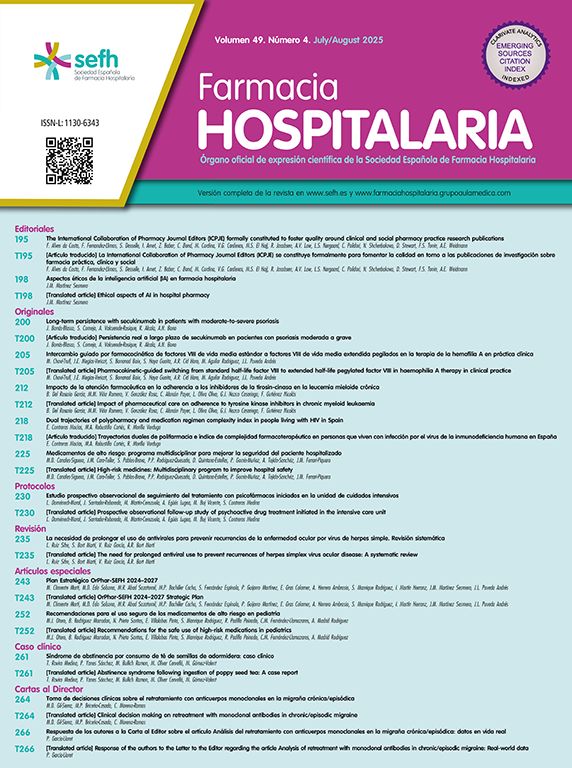We are writing in regard to the article by Beobide Telleria et al., entitled “Should the funding of laxatives be reconsidered?”,1 which we have read with great interest. As the authors point out, constipation is a major health problem nowadays, because of its prevalence and associated complications. We believe that it would be useful to supplement this article by providing information on the situation in paediatric patients.
In general paediatrics, constipation can affect 30% of children,2 and this figure is much higher in patients with severe neurological disease, with a prevalence of up to 75%.3 Constipation can reduce children's quality of life and lead to serious situations such as faecal impaction, intestinal obstruction, and even death. Treating constipation may involve a combination of hygienic-dietary and pharmacological measures.
In January 2023, we conducted a cross-sectional study in the Complex Chronic and Palliative Paediatric Patient Unit of our hospital.4 The results showed that of the 71 active patients, 69% required daily treatment with laxatives. All of these patients had neurological disease. In this population, 6 different types of laxatives were used, sometimes in combination, with polyethylene glycol being the most frequently used (84.44%) followed by lactulose (13.33%). Two patients received magnesium hydroxide, 1 patient received lactitol, 1 patient took sennosides, and 1 patient received microenemas. Of the 6 types of laxatives used, 5 were not funded by the Spanish National Health System, while the sixth (lactulose) was only funded in specific situations (portosystemic encephalopathy and paraplegia), which did not apply to these patients. The average monthly cost of laxatives among them was €20.86, amounting to an annual cost of €250.32. It should be noted that 50% of the minors treated in this unit came from families experiencing economic precariousness, involvement in the underground economy, and unemployment.5
Constipation is a significant problem in children with severe neurological disease. However, the lack of funding for most of the drugs used in its management can result in an unaffordable cost for families facing economic vulnerability.
We are grateful to our colleagues for highlighting this issue and concur with the opinion of Beobide et al. regarding the necessity to reevaluate the public financing of these drugs.
FundingNone declared.
CRediT authorship contribution statementLucía Hernández Peláez: Conceptualization, Formal analysis, Investigation, Methodology, Supervision, Writing – original draft, Writing – review & editing. José Vicente Serna Berná: Conceptualization, Data curation, Formal analysis, Investigation, Methodology, Supervision, Validation, Writing – review & editing. María de Castro Julve: Supervision, Visualization, Writing – review & editing. Alba Pérez Contel: Investigation, Methodology, Validation, Visualization, Writing – review & editing.





